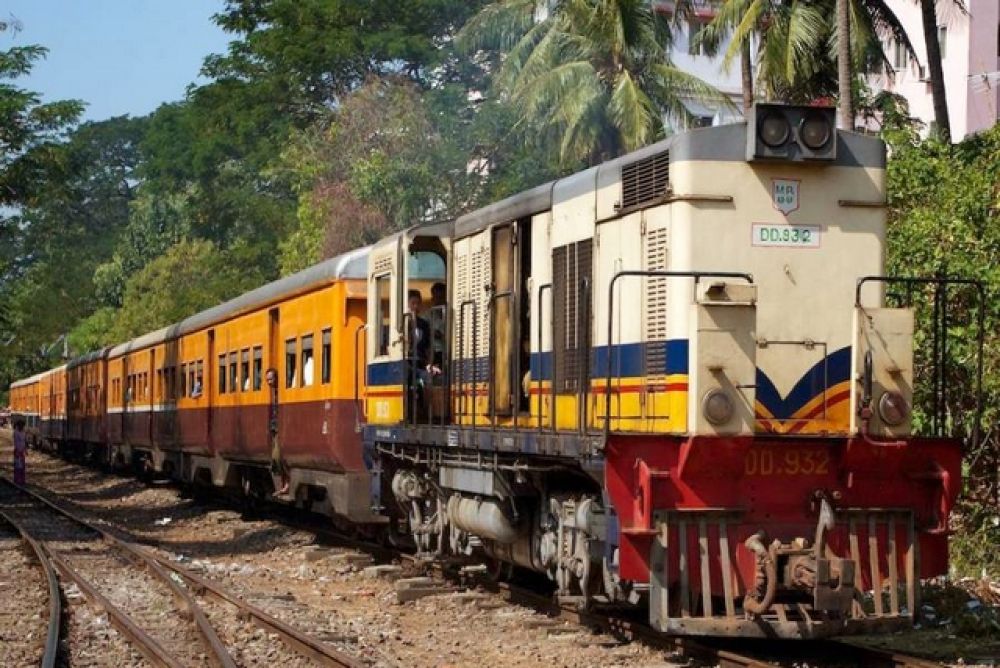

The Yangon Circular Train is not only a means of transport but also a popular attraction for both locals and tourists seeking a glimpse into the daily life of the people in Myanmar. The train system, which has been running since the early 1950s, has become an iconic feature of Yangon, the country’s largest city and its commercial capital. This 46-kilometer railway loop, which connects various parts of the city and its suburbs, offers an authentic and immersive travel experience unmatched by any other mode of transport in the region.
Tourism in Yangon, and Myanmar as a whole, has experienced various phases, shaped by the country's political and economic changes. Historically, Myanmar opened to tourism in the early 20th century during the British colonial era, with the development of railways, hotels and other infrastructure catering to early travelers’ quests for exotic cultures and landscapes. However, for much of the second half of the 20th century, the country remained isolated due to its internal policies.
It wasn't until the late 1990s and early 2000s that Myanmar started to re-emerge as a tourist destination. With Yangon at the forefront, the country began to see an influx of tourists curious about its storied history, rich culture, and enchanting landscapes. The Yangon Circular Train became a highlighted attraction for those wanting to see the city through the eyes of its residents.
For visitors, a ride on the Yangon Circular Train isn't just a journey through the city’s outskirts; it’s a step back in time. The slow-traveling trains, some retaining their mid-20th-century charm, offer a rare view of the urban landscape transitioning into rural communities, small towns, and local markets buzzing with activity. This immersive experience allows travelers to observe the simple day-to-day activities of locals as they commute, trade, and interact.
In recent years, there has been a significant shift towards sustainable and responsible tourism practices in Myanmar. With increased international attention, the tourism industry in Yangon is evolving to offer more authentic and engaging experiences that also benefit local communities. Advancements in accommodation standards and the rise of boutique hotels have catered to the comfort of international travelers while promoting sustainable tourism.
Experiential travel is also a rising trend in Yangon. Tourists are actively seeking out cultural exchanges, street food tours, and opportunities for local interaction. The city’s efforts in the preservation of its colonial architecture and heritage sites have attracted enthusiasts of history and architecture, making cultural tourism an integral part of the local tourism industry.
With an emphasis on increasing digital engagement, tourists can now conveniently access information and book their tickets for the Yangon Circular Train online. Additionally, travel blogs and social media influencers are playing a critical role in showcasing the authentic experiences that the train journey offers, thus contributing to a modern wave of interest and appreciation for this unique mode of travel.
Despite its charm, the Yangon Circular Train faces challenges such as the need for modernization and the impact of urban expansion. Efforts have been made to upgrade the rail system for increased comfort and reliability while retaining its historic appeal. The city's transport authorities are working to balance the preservation of the traditional experience with the need for efficiency and safety.
As tourism continues to grow in Yangon, the Circular Train will undoubtedly remain a beloved and treasured feature. It stands out as a living tribute to the city’s past and present, and a true symbol of the local way of life that both residents and visitors have come to admire.